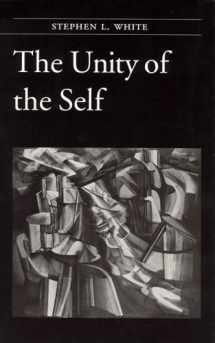
The Unity of the Self (Representation and Mind)
ISBN-13:
9780262231626
ISBN-10:
026223162X
Author:
Stephen L. White
Publication date:
1991
Publisher:
Bradford Books
Format:
Hardcover
438 pages
FREE US shipping
Book details
ISBN-13:
9780262231626
ISBN-10:
026223162X
Author:
Stephen L. White
Publication date:
1991
Publisher:
Bradford Books
Format:
Hardcover
438 pages
Summary
The Unity of the Self (Representation and Mind) (ISBN-13: 9780262231626 and ISBN-10: 026223162X), written by authors
Stephen L. White, was published by Bradford Books in 1991.
With an overall rating of 4.2 stars, it's a notable title among other
books. You can easily purchase or rent The Unity of the Self (Representation and Mind) (Hardcover) from BooksRun,
along with many other new and used
books
and textbooks.
And, if you're looking to sell your copy, our current buyback offer is $0.3.
Description
In these essays Stephen White examines the forms of psychological integration that give rise to self-knowable and self-conscious individuals who are responsible, concerned for the future, and capable of moral commitment. The essays cover a wide range of basic issues in philosophy of mind, metaphysics, moral psychology, and political philosophy, providing a coherent, sophisticated, and forcefully argued view of the nature of the self. Beginning with mental content and ending with Rawls and utilitarianism, each essay argues a distinctive line. Together they are a unified and powerful philosophical position of considerable scope, one that provides a unique vision of the mind, consciousness, personhood, and morality. White argues that the unity of the self revealed in personal identity and moral responsibility is best understood in normative terms. Basic to such features of the self are the patterns of self-concern in which they are characteristically displayed and the internal justification that supports such concern. The treatment of intentionality and consciousness that grounds this account emphasizes privileged self-knowledge and practical rationality and their corresponding contributions to the unity of the self. A final source of unity emerges from the analysis of our fundamental commitments, an analysis that ensures a central place in moral theory for the notion of the self.


We would LOVE it if you could help us and other readers by reviewing the book
Book review

Congratulations! We have received your book review.
{user}
{createdAt}
by {truncated_author}


